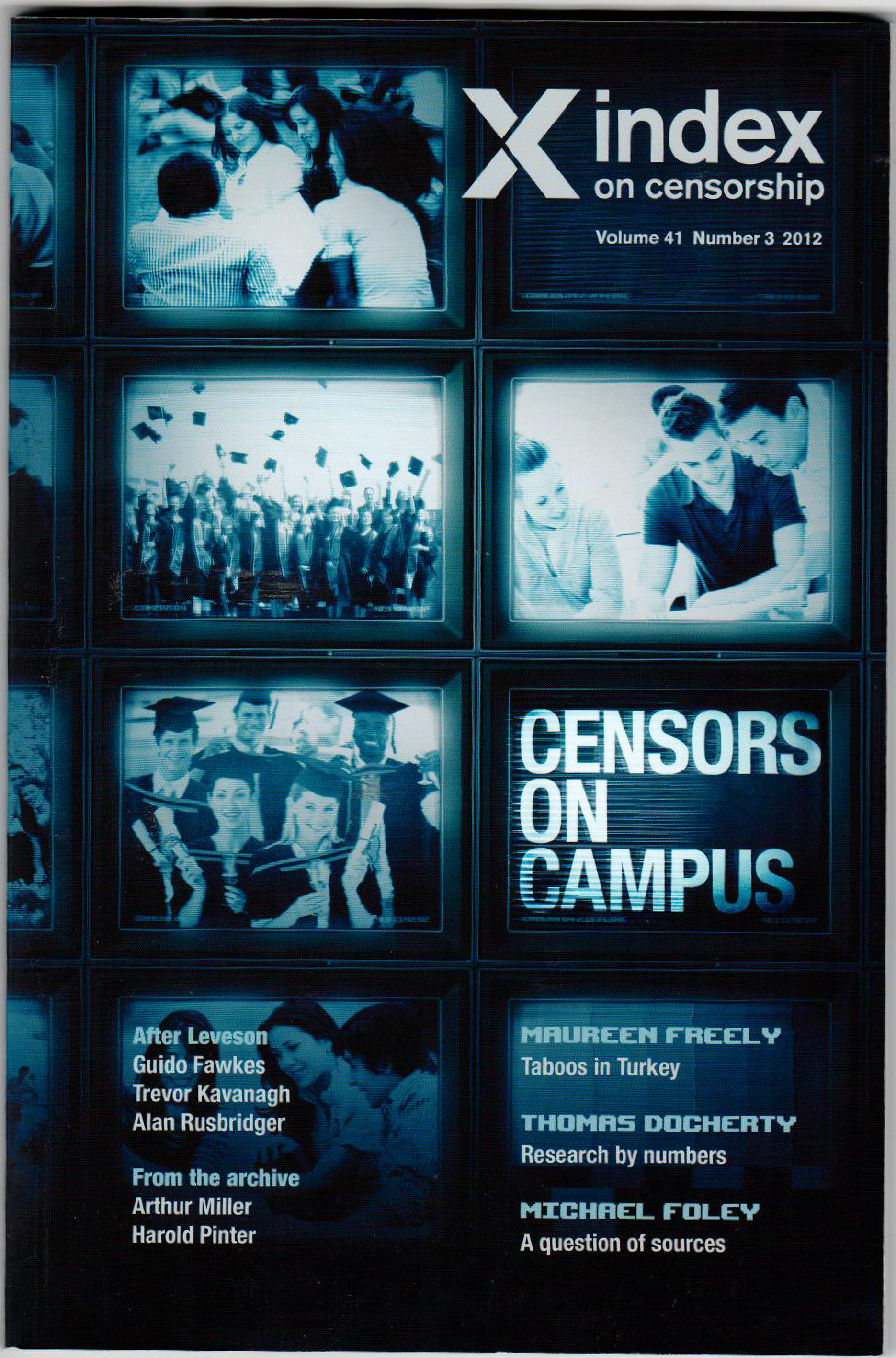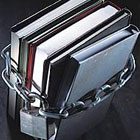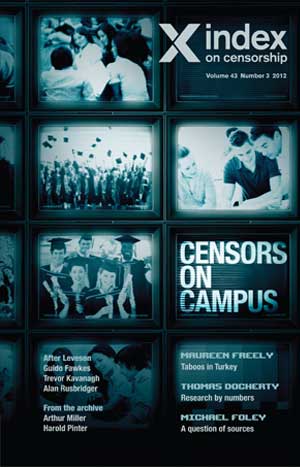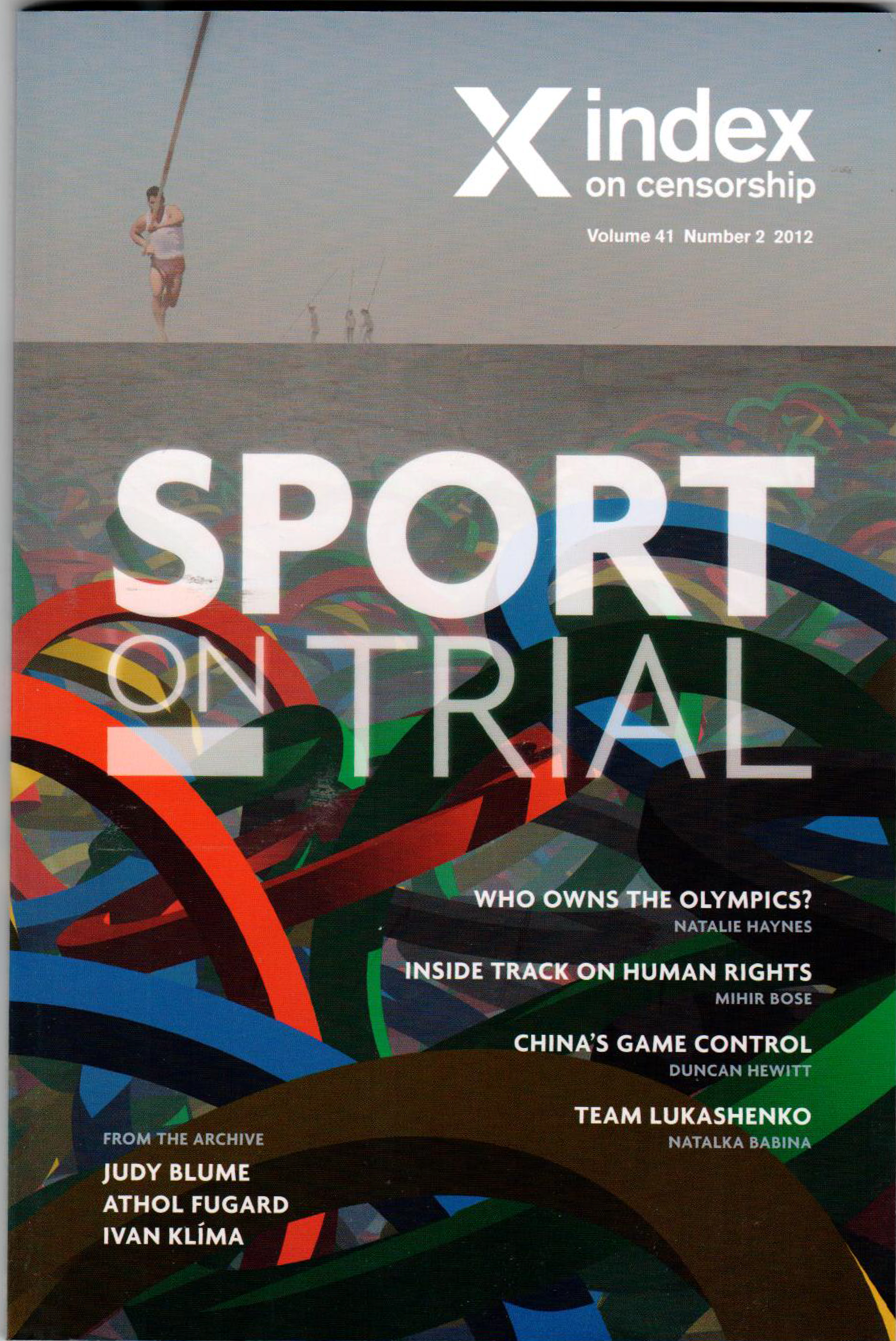Tougher legislation will lead to judges becoming censors, says political blogger Guido Fawkes So far Lord Justice Leveson has been angry with me, threatened me with jail, censored me, twice summoned me, argued with me at his inquiry and thrice...


Tougher legislation will lead to judges becoming censors, says political blogger Guido Fawkes So far Lord Justice Leveson has been angry with me, threatened me with jail, censored me, twice summoned me, argued with me at his inquiry and thrice...

Academic freedom is at risk. From the impact of the cuts in the UK to the dangers faced by scholars in Turkey, Iraq, Belarus and Thailand, Index reports on the threats.

MAGAZINE: US legislation may force research journals to make publicly funded work freely available. But why has the proposal not been universally welcomed? Doug Rocks-Macqueen reports

MAGAZINE Academic freedom is in danger. Thomas Docherty explains how cuts are damaging universities across the UK

Index on Censorship Magazine Volume 42 Number 3 2012 THOMAS DOCHERTY The attack on knowledge MAUREEN FREELY Challenging taboos in Turkey BART KNOLS The case for open access HEATHER L WEAVER Creationism by stealth SINFAH TUNSARAWUTH Thailand's royal...

MAGAZINE In many parts of the world, malaria continues to kill millions — yet experts are still denied access to vital research. Bart Knols reports

Gore Vidal, who died this week, was often scathing in his attacks on US foreign policy. In April 2002, Index on Censorship magazine was the first English-language publication to feature this essay, written after 9/11

The Syrian regime has gone to great lengths to silence the satirical commentary of Ali Ferzat

Mihir Bose asks whether human rights should be a criterion for hosting coveted international sporting events

Index on Censorship visits the ethical pit stops to ask whether sporting events can be good for democracy.
A quarterly journal set up in 1972, Index on Censorship magazine has published oppressed writers and refused to be silenced across hundreds of issues.
The brainchild of the poet Stephen Spender, and translator Michael Scammell, the magazine’s very first issue included a never-before-published poem, written while serving a sentence in a labour camp, by the Soviet dissident Aleksandr Solzhenitsyn, who went on to win a Nobel prize later that year.
The magazine continued to be a thorn in the side of Soviet censors, but its scope was far wider. From the beginning, Index declared its mission to stand up for free expression as a fundamental human right for people everywhere – it was particularly vocal in its coverage of the oppressive military regimes of southern Europe and Latin America but was also clear that freedom of expression was not only a problem in faraway dictatorships. The winter 1979 issue, for example, reported on a controversy in the United States in which the Public Broadcasting Service had heavily edited a documentary about racism in Britain and then gone to court attempting to prevent screenings of the original version. Learn more.